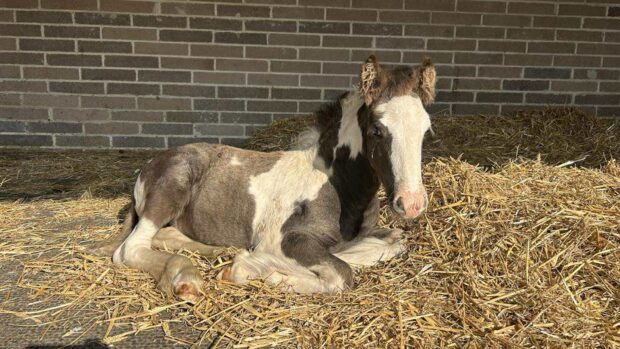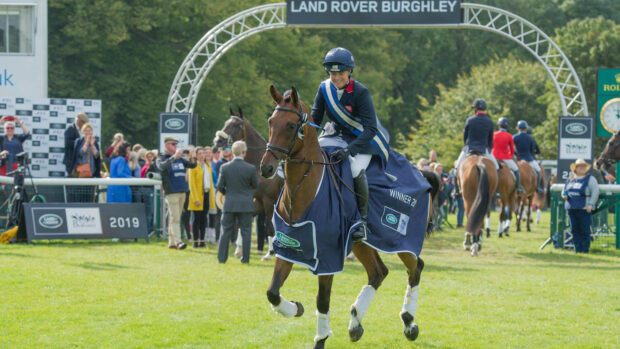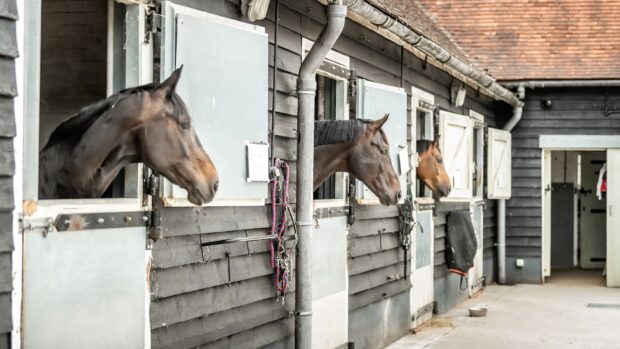A group of horses rescued from a “field of death” have been reunited with the women who fought for their survival.
The horses were living in Harefield, in the London borough of Hillingdon, without shelter or veterinary care, and in an environment littered with hazards.
Residents banded together to look out for the herd, providing hay and water and hosting fundraising events to support them, but knew more needed to be done.
“They were sad but they had fight in them and that really resonated with us,” said Zoe, one of the women.
“We first found out about World Horse Welfare when we started pressuring the council – and they were just brilliant.”
World Horse Welfare’s field officers were aware of the horses and had been monitoring them for some years but were unable to trace an owner, as none of them were microchipped.
The charity was hampered further by the fact the land was owned by a consortium of more than 70 people and the horses’ basic needs were being met by the women who wanted to help them, but which made building a case to take them away difficult.

The horses at Harefield.
World Horse Welfare field officer Becky Bedson said: “I first got involved with the Harefield horses about four years ago. We had welfare cases with individual horses – some got out on the road and hit by a car, and sadly a mare died giving birth.
“Whilst we believed the horses were owned, we weren’t able to find out who the owners were – they didn’t have microchips, so there was no way of knowing. But what we did know was that they weren’t being cared for.
“With each passing winter their situation deteriorated, and each year, ill and injured horses were removed from the group. It got to a point where we needed to do something as a collective, for the whole herd, because the historical evidence said that they were all likely to suffer if we didn’t rescue them.
“We wouldn’t be able to do this work if it wasn’t for the public reporting welfare concerns to us and donating to our charity.”
World Horse Welfare and the local authority worked with a vet and other charities to remove the horses; 13 horses were rounded up and taken to World Horse Welfare’s Hall Farm in Norfolk where they were assessed by the team of grooms, vets and farriers.
Their future is now bright. All the horses are in good condition and have undergone rehabilitation and handling, with the intention that they will find good homes in future.
Once all the horses were settled at the farm and in good health, the women who made their rescue possible were invited to the charity to see them.
“It’s just been incredible seeing how far the horses have come and to see what everyone has done for them,” said Liv, one of those involved.
“I think it goes without saying World Horse Welfare has done incredible amounts. They have given them so much love and attention, which is so important in building a bond between human and horse and it’s given us a lot of motivation to keep doing what we are doing in supporting them.”
- To stay up to date with all the breaking news throughout the National Dressage Championships, Blenheim Horse Trials, Horse of the Year Show and more, subscribe to the Horse & Hound website
You may also be interested in:

Subscribe to Horse & Hound magazine today – and enjoy unlimited website access all year round




